Support quality, independent, local journalism…that matters
From just £1 a month you can help fund our work – and use our website without adverts. Become a member today

At just around one o’clock on April 6, the bells of Rhymney chimed.
In the bell tower of St David’s Church was Kevyn Price, marking the end of a walk of celebration and remembrance for the poet Idris Davies – 70 years to the day he died.
Kevyn spoke about the significance of the walk and what it symbolised and said: “Seventy years today was the passing of Idris Davies and his words are still remembered by the townfolk of Rhymney.”
Davies wrote about the bells of Rhymney and now, they rang in memory of him.
This was a kind of poetic symbolism – just as the walk was too. Davies was a keen walker himself, finding inspiration in the contrast between the rolling hills and the industrial feel of the town.
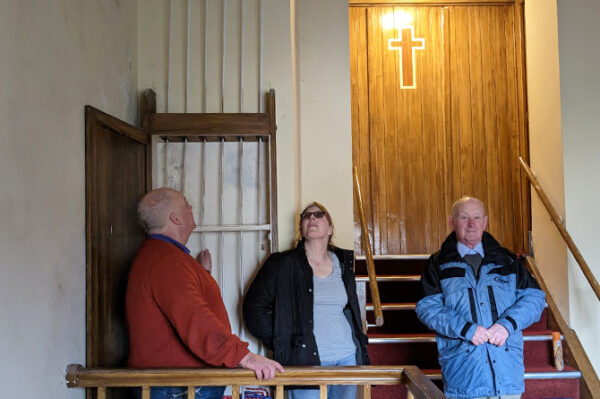
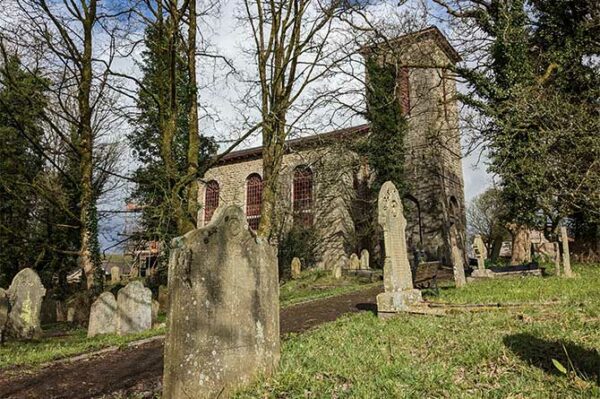
The story walk was run by Kevyn, who leads weekly walks with the Rhymney Heritage group.
The route visited several sites connected to the poet – from his grave, to the street where he was born, and to the house where he died on Victoria Road as well as a sculpture dedicated to his poetry. Davies’ poetry was read, stories were exchanged and the wider history of Rhymney was told.
Other walkers included Gaynor Dickson, who lives in Rhymney, and Gareth Lawrence, who was born in Rhymney and now lives in Pontlottyn.
Gareth shared his personal connection to the poet, “Idris Davies was a friend to the family,” he said, adding that he also has some memories from when he was a child.
Gareth, 75, was five when Idris Davies died and remembers being encouraged by his teacher to head outside to watch the procession firsthand.
Though there was little to see, as there were few cars in those days.

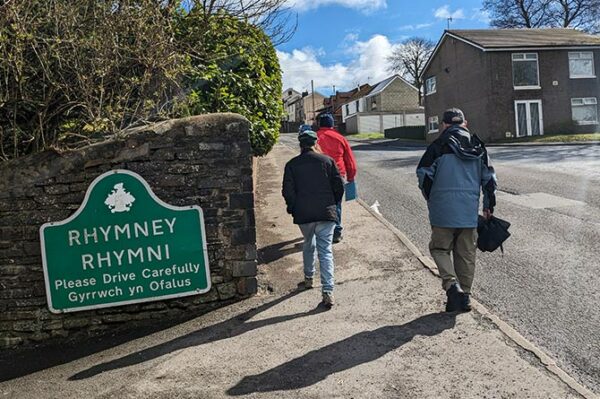
Kevyn has a personal connection to the poet too, as his next-door neighbour used to live in Idris Davies’ house.
He is also a fan of his poetry. “He’s written so many, you can’t really pick [a favourite],” said Kevyn, but if he had to choose one he could just about manage.
“The Bells of Rhymney is close to my heart,” he added, referring to Davies’ poem XV from his collection of poems Gwalia Deserta, which is perhaps better known by the song adaptation, The Bells of Rhymney, covered by artists including the Byrds and Pete Seeger.
The poet wrote about many topics including life in Rhymney between the two World Wars, industrial life in the Valleys and portrayed a “period of hardship and change in Rhymney” with unflinching honesty, according to the National Library of Wales.
And though he didn’t shy away from difficult topics, there was always a sense of pride in his home, his Rhymney.
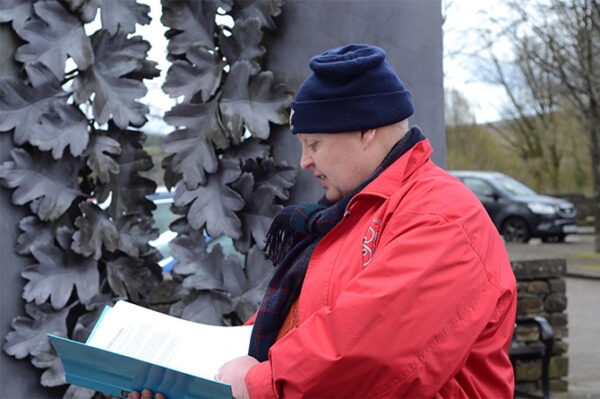
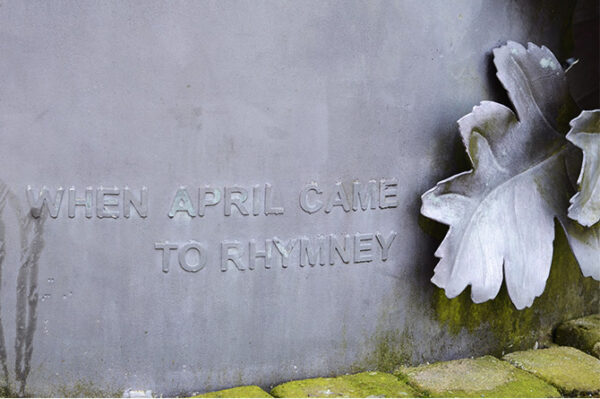
The same was felt on the walk – that the town has a history to be proud of, from giants of poetry like Idris Davies to those from industry, such as Andrew Buchan.
Kevyn read three poems on the walk, the last, When April Came to Rhymney, is etched into a sculpture by Rhymney Library and was read there.
The poem talks of how the frequent April showers mixed with the sun could bring “a magic hour” to the “blackest streets”.
After reciting the last poem, Kevyn joked that it might just have been a bit too literal, for sure enough, April had come and brought with it a heavy rain shower – and even some unexpected hail.
“Sorry, I shouldn’t have said that last poem,” he said as he sheltered with fellow walkers from the elements.
But just as Idris wrote, after the shower came the sun, which shone once more on the streets of Rhymney.
Rhymney Heritage organises a heritage or story walk every Thursday starting at 11am.

When April came to Rhymney,
Idris Davies
with shower and sun and shower.
The green hills and the brown hills,
could sport some silver flower.
And sweet it was to fancy,
that even the blackest mound
was proud of its single daisy,
rooted in bitter ground.
And old men would remember,
and young men would be vain.
And the hawthorn by the pithead,
would blossom in the rain.
And the blackest streets of evening,
they had their magic hour,
when April came to Rhymney,
with shower and sun and shower.
Support quality, independent, local journalism…that matters
From just £1 a month you can help fund our work – and use our website without adverts.
Become a member today
